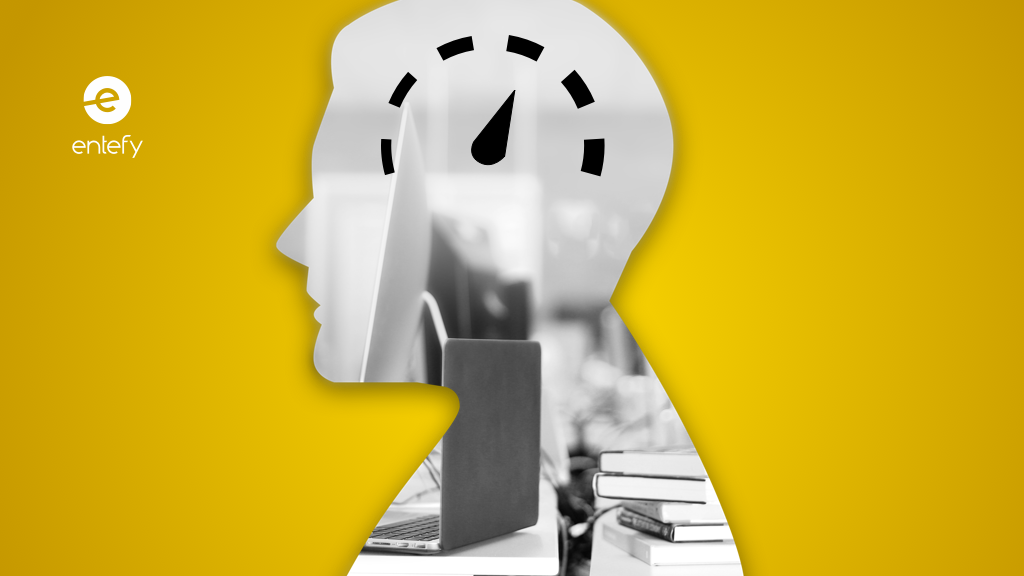Focus and productivity are closely linked. The more time you spend focused on the task at hand, the less time lost to distraction. But intending to stay focused and successfully staying focused are two different things.
Imagine needing to research a topic for a project. You sit down, get comfortable, maybe even block off 30 minutes of uninterrupted time. But what happens? A few minutes in, a desktop notification pops up. You click ‘Later’ but lose a moment or two remembering where you left off. Then a few minutes later, just as you’re back in the groove, the ding of a new message grabs your attention. Then another. And another. And so on.
Before you know it, half of your 30 minutes was lost to distraction. Maybe way more.
It can be difficult to concentrate when there’s an influx of information constantly bombarding us. That’s just a limitation of our brains. But there are habits you can develop and techniques you can use that defuse distraction. While we were researching our article “Information overload, fake news, and invisible gorillas. Teach your brain new tricks,” we uncovered a few scientifically proven tips and habits that can strengthen your focus and boost your productivity.
We’ve grown that list of tips and habits to 23 proven techniques for improving focus:
1. Limit how many things you read. Bouncing from topic to topic and source to source impairs the brain’s ability to make sense of the information.
2. Unitask—do one thing at a time. Research shows multitasking (switching from task to task) reduces productivity by up to 40%.
3. Relax your posture. Unclenching your body helps you breathe better and think clearly.
4. Strengthen your willpower. Get your will in shape with small exercises like cleaning your desk.
5. Doodle. One study found that doodling boosts cognitive performance and memory.
6. Breathe in essential oil aromas. Science suggests you can “smell your way to a better brain” by inhaling essential oils like lemon, peppermint, rosemary, lavender, and jasmine.
7. Seek out new opinions to test your own views. When we step outside our comfort zones, we teach our brains new habits.
8. Meditate. One study showed mindfulness meditation strengthened the brain regions associated with concentration and decision-making.
9. Set the thermostat to 71 degrees. A Cornell study found a link between a warm office and better productivity.
10. Drink water. A study of women found mild dehydration resulted in bad moods and weakened concentration.
11. Take breaks to recharge. Brief diversions can improve focus and help you stay on task.
12. Dress for success. There is evidence that the way you dress impacts sustained attention.
13. Turn off device notifications. One Entefyer shared her experience taking a weeklong notification vacation.
14. Your intentions matter. Stating your intentions to yourself helps keep what you want to focus on at the forefront of your mind.
15. Don’t rush—spend time absorbing what you read. Your brain needs time to process and store new information.
16. Declutter your work space. When the environment around you is cluttered, all those objects restrict the brain’s ability to focus.
17. Work beside a plant. In fact, just adding a plant to your office can boost productivity by 15%.
18. Listen to music without lyrics. Research suggests that listening to pleasing instrumental music can reduce distraction.
19. Take a moment to look at cute photos. Japanese researchers demonstrated that cute images boost attention and focus.
20. Eat superfoods. Adding “smart foods” to your diet leads to a healthy brain that concentrates better.
21. Drink tea. The second-most consumed beverage in the world after water, tea can improve attention and alertness.
22. Take a walk to clear your head. Research shows that exercise increases blood flow to the brain, helping it perform better.
23. Chew gum. Chewing gum for 5 minutes before undertaking a task boosted the performance on the task.
The modern workplace is full of distractions. Adopting new techniques like these can make the difference between an hour lost or an hour gained in getting things done.
